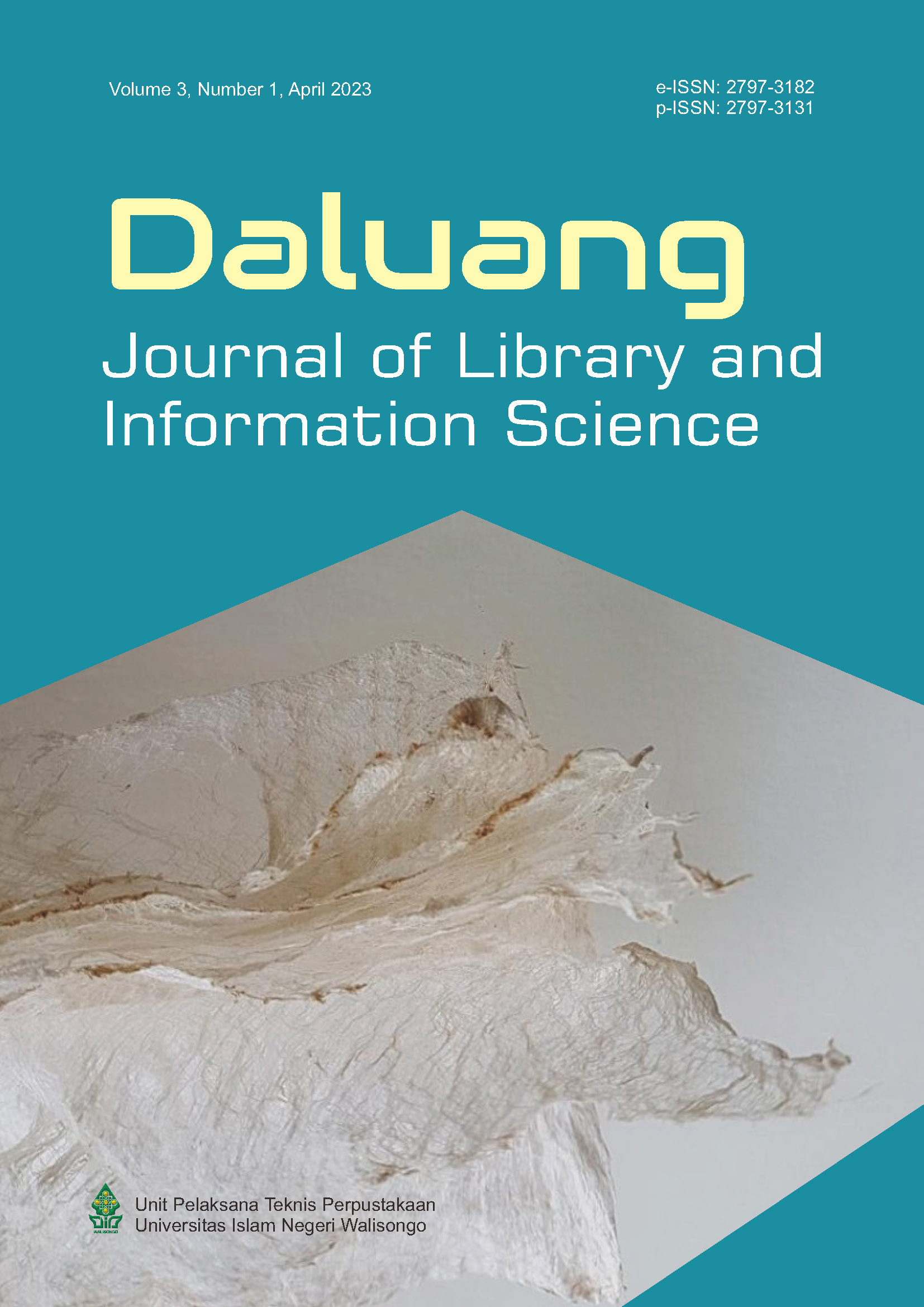Content preservation analysis of Semarang City tourism website
Main Article Content
Abstract
Background. Semarang City tourism site is a means to market the tourism business industry has not been managed properly. The niche on the tourism website has not shown a complete description of the actual conditions of a digital collection preservation effort. This study aims to analyze content preservation on tourism websites in Semarang City. The purpose of this research is to describe the excellence of Semarang City tourism website when filled with complete and attractive content.
Methodology. This study on preservation analysis of tourism websites uses descriptive qualitative methods by conducting media content analysis on the tourism website http://pariwisata.semarangkota.go.id/ as tourism information navigation. The core of the problem studied is the lack of relevance of Semarang City's development plan as a smart city with the readiness of tourism information.
Results and discussion. The results of the content analysis of the preservation of the site found that the content of the site has not fully conveyed actual and interesting ideas, ideas, or information.
Conclusions. Preservation efforts have been done well, but the quality of this niche on the site needs to be improved. This site is still undergoing an application maintenance process so there is a delay in updating the site content. Suggestions for site improvement include providing opportunities for the community to send coverage products about tourism activities through an editing process to harmonize the content with other aspects of beauty. Visitors expect an honest statement from the site manager to apologize that this site is undergoing application maintenance or preservation so that visitors can figure out the actual situations
Downloads
Article Details
This work is licensed under a Creative Commons Attribution-NonCommercial-NoDerivatives 4.0 International License.
Articles published in Daluang Journal of Library and information Science are available under Creative Commons Attribution Non-Commercial No Derivatives Licence (CC BY-NC-ND 4.0). Authors retain copyright in their work and grant Daluang Journal of Library and information Science right of first publication under CC BY-NC-ND 4.0. Users have the right to read, download, copy, distribute, print, search, or link to the full texts of articles in this journal, and to use them for any other lawful purpose.
Articles published in Daluang Journal of Library and information Science can be copied, communicated and shared in their published form for non-commercial purposes provided full attribution is given to the author and the journal. Authors are able to enter into separate, additional contractual arrangements for the non-exclusive distribution of the journal's published version of the work (e.g., post it to an institutional repository or publish it in a book), with an acknowledgment of its initial publication in this journal.
This copyright notice applies to articles published in Daluang Journal of Library and information Science volumes 1 onwards.
References
Damp, T. (2020). Significance of ethics in education. April 2017, 1–10.
Hatmanti, G. P., & Irwansyah, I. (2023). Website perusahaan sebagai media storytelling: Analisis multimodalitas website Pt. Unilever Indonesia. Ekspresi Dan Persepsi : Jurnal Ilmu Komunikasi, 6(1), 1. https://doi.org/10.33822/jep.v6i1.4537
Higgins-Desbiolles, F., Carnicelli, S., Krolikowski, C., Wijesinghe, G., & Boluk, K. (2019). Degrowing tourism: rethinking tourism. Journal of Sustainable Tourism, 27(12), 1926–1944. https://doi.org/10.1080/09669582.2019.1601732
Islamiah, F., Rusmiati, R., & Wijaya, R. (2022). Penilaian kepuasan pengguna website sistem informasi akademik menggunakan metode website quality. Metik Jurnal, 6(2), 133–139. https://doi.org/10.47002/metik.v6i2.381
Jasevičienė, F. (2012). The ethics of banking: Analysis and estimates. Ekonomika, 91(3), 101–116. https://doi.org/10.15388/ekon.2012.0.884
Loach, K., & Rowley, J. (2022). Cultural sustainability: A perspective from independent libraries in the United Kingdom and the United States. Journal of Librarianship and Information Science, 54(1). https://doi.org/10.1177/0961000621992824
Martin, K., Shilton, K., & Smith, J. (2019). Business and the ethical implications of technology: Introduction to the symposium. Journal of Business Ethics, 160(2), 307–317. https://doi.org/10.1007/s10551-019-04213-9
Obeidat, O., & Al-Shboul, M. K. (2021). The impact of adopting professional information ethics on business performance in Jordanian Banks. August.
Plakhotniuk, G., Liubchenko, I., Prokhorchuk, O., Yuzyk, O., Turchak, A., & Markova, O. (2021). Formation of future specialists’ information competence. Revista Romaneasca pentru Educatie Multidimensionala, 13(2), 57–77. https://doi.org/10.18662/rrem/13.2/410
Tanselle, G. T. (2018). Notes on Recent work in descriptive bibliography. Studies in Bibliography, 60(1), 1–93. https://doi.org/10.1353/sib.2018.0000



